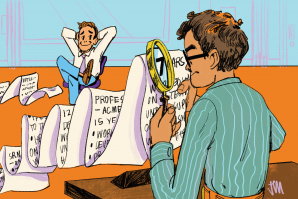I remember interviewing a gentleman turning 100 years of age. I asked him, “What is the best thing about being 100?” He said, “The absolute lack of peer pressure.” That may be changing. The number of centenarians is expected to quadruple in the next 30 years.
A typical retirement 50 years ago went something like this:
On your 65th birthday, they threw a party and gave you a gold watch. On the first day of retirement, you likely had a pension (whether you worked in the public or private sector); Social Security was fully funded; Medicare was fully funded, meaning retirees had complete confidence in their retirement income streams. You joined a bowling league, took three cruises and died at age 72.
Today is a very different story. Pensions have disappeared in the private sector and are likely to be modified in the public sector. Social Security and Medicare are running out of money. And we’re living longer. The actuarial tables tell us if a relatively healthy couple age 65 walks into my office, there is a 50/50 chance one of them hits the age of 90.
The good news: You could get 30-plus years of retirement. The bad news: Your retirement financial plan must last 30-plus years, with some of the components looking a little shaky.
All of this begs the question: Is a retirement age of 65, which BlackRock’s CEO Larry Fink wrote recently, “originated during the Ottoman Empire,” still relevant? Is it right for the person? Is it right for the company? Is it right for our country?
First the person. I can’t tell you how many times I’ve seen retirees struggle (men especially). I think men underestimate how much enjoyment and fulfillment they receive from their position in the working world. To me, retirement should not be defined as a “life of leisure” as much as a transition to a modified work environment, where you have full control of your schedule and duties.
Second, for companies, there is a tradeoff. Retirement means very knowledgeable people walk out the door, many at the peak of their value to the company. But, when they walk out the door, that allows younger employees to move up and test their mettle. Some industries have ensured their employees leave before they get too old. Airlines require pilots to retire at 65. Law enforcement in California built a system which ensures most will be out the door in their early 50s. (I’m still not sure why we force a pilot to leave the cockpit at 65 but allow a president to “remain at the controls” at 85.)
As for the nation, Social Security was intended to be a safety net but morphed into a foundational piece of most people’s retirement. When it was signed into law in 1935, the average life expectancy for a white male was 61 and 65 for a white woman, and 50 for a Black man and 55 for a Black woman. Today the average life expectancy is 75 to 80 for both men and women, and about 76 for Black women and 72 for Black men. In 1940, there were 42 workers paying into the system for every retiree. Today that ratio is less than 3 to 1. Social Security must be re-imagined, or it will run out of money, and benefits will be slashed.
The potential solutions are not difficult to understand. We could raise the Social Security wage base and the amount of money workers and employers pay into the system.
We could raise the retirement age. Perhaps it should be defined not as a number but as an equation. Average U.S. life expectancy minus 7 years: (77.5-7 = 70.5 full retirement age for benefits). This equation would allow for flexibility as life expectancies improve.
We could “means test” Social Security, so if you have income as a retiree above $400,000, you are not eligible for benefits. I’m amazed at the fervor with which people will attempt to maximize their Social Security benefits. I think of SS more like unemployment insurance, which we all pay into but are not upset if we never have to access those bennies.
Make no mistake, this is less about longevity and more about a dysfunctional political system that is incapable of acting on long-term systemic issues until there is a crisis. One possible solution — put Social Security and Medicare under the purview of the Federal Reserve and mandate that the Fed adjust benefits annually to keep both programs viable over the long term. This would put pressure on Congress to adjust funding mechanisms so the Fed would not be forced to slash benefits.
Quite simply, the idea of a uniform retirement age of 65 is antiquated and financially ruinous if we expect the government to foot the majority of the bill (through Social Security and Medicare). Our standard retirement age needs to be adjusted, but more importantly, we need to adjust the way we deal with these issues. Slight course corrections a decade ago would have short-circuited what is now an impending crisis.
Kelly Brothers is a principal and financial advisor at CAPTRUST. Previously, he was a news anchor on KCRA and KFBK, where he still does daily business reports.
–
Subscribe to the Comstock’s newsletter today.
Recommended For You

The Marvel of Milestones
Comstock’s President and Publisher Winnie Comstock-Carlson reflects on 35 years since launching the iconic Capital Region magazine.

Sacramento’s Affordable Housing Crisis: Time for Real Solutions, Not Soundbites
OPINION: A sustainable designer weighs in on the true cost of housing in Sacramento
As the mayoral race steps into its next phase, candidates are quick to highlight the city’s urgent need for affordable housing. Yet the rhetoric rarely addresses the real issues.

We’re Hitting One Into the Ballpark!
Comstock’s President and Publisher Winnie Comstock-Carlson shares her thoughts on the A’s move to Sacramento.

Dilemma of the Month: How Do I Respond to Requests for References?
Evil HR Lady explains the difference between a background check
and a reference check, and why employers don’t need to answer
every question.



